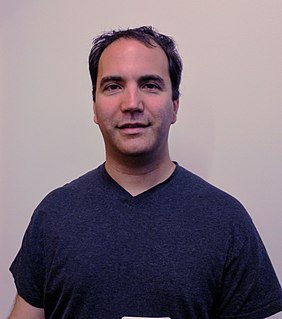A Quote by Bram Cohen
The mark of a mature programmer is willingness to throw out code you spent time on when you realize it's pointless.
Related Quotes
In this respect a program is like a poem: you cannot write a poem without writing it. Yet people talk about programming as if it were a production process and measure "programmer productivity" in terms of "number of lines of code produced". In so doing they book that number on the wrong side of the ledger: we should always refer to "the number of lines of code spent".
Before 'Dilbert,' I tried to become a computer programmer. In the early days of computing, I bought this big, heavy, portable computer for my house. I spent two years nights and weekends trying to write games that I thought I would sell. Turns out I'm not that good a programmer, so that was two years that didn't work out.
You become a serious programmer by going through a stage where you are fully aware of the degree to which you know the specification, meaning both the explicit and the tacit specification of your language and of your problem. "Hey, it works most of the time" is the very antithesis of a serious programmer, and certain languages can only support code like that.
There's a subtle reason that programmers always want to throw away the code and start over. The reason is that they think the old code is a mess. [...] The reason that they think the old code is a mess is because of a cardinal, fundamental law of programming: It's harder to read code than to write it.
I spent most of my 20s dating older men, and I really wish I had spent that time dating men my own age who were going through the same experiences I was. I totally understand the appeal of a mature, dashing older man over fellow twenty-somethings who are still figuring things out. And, true, a fling with an older man can be instructive in many ways, and no doubt he finds you attractive.



































